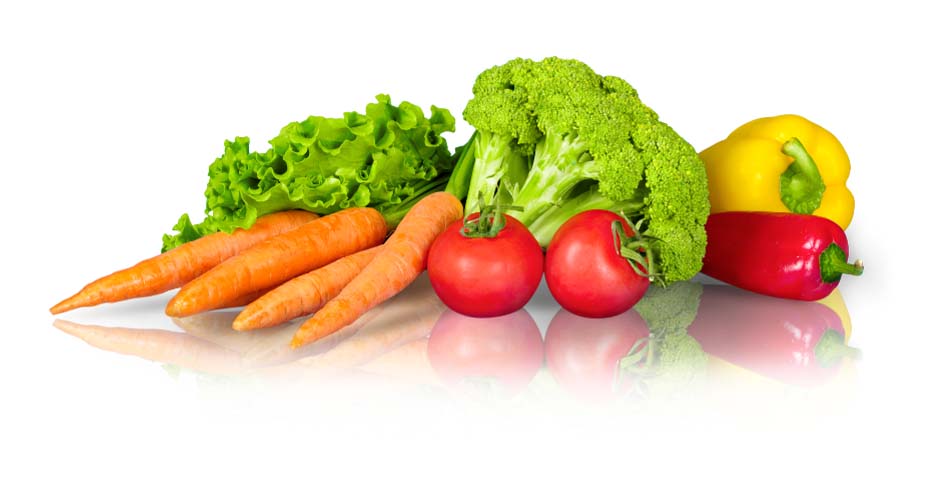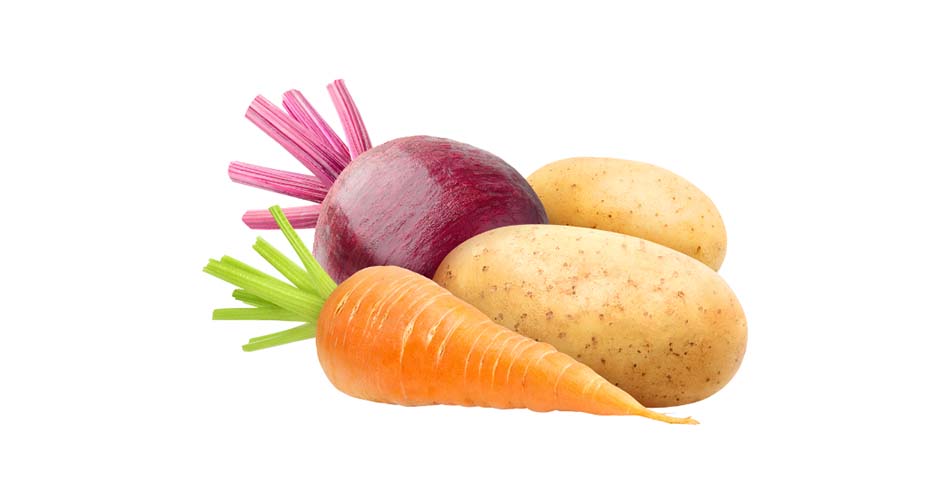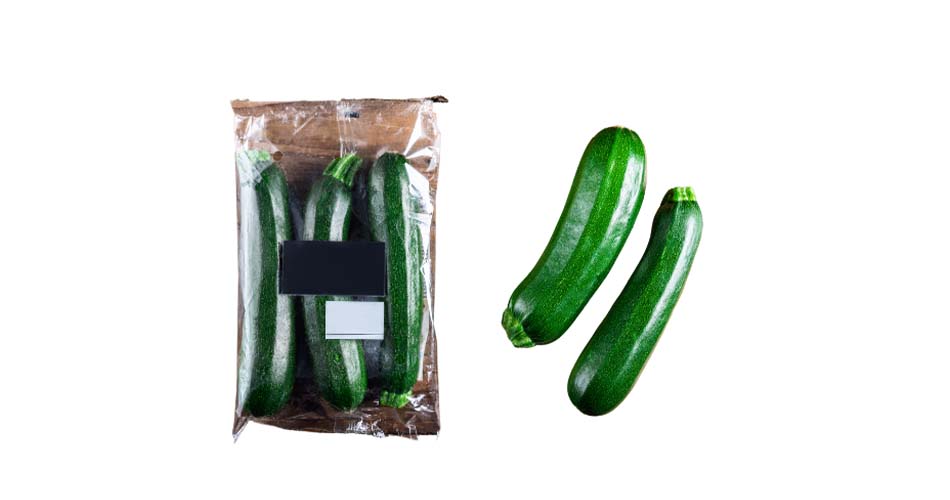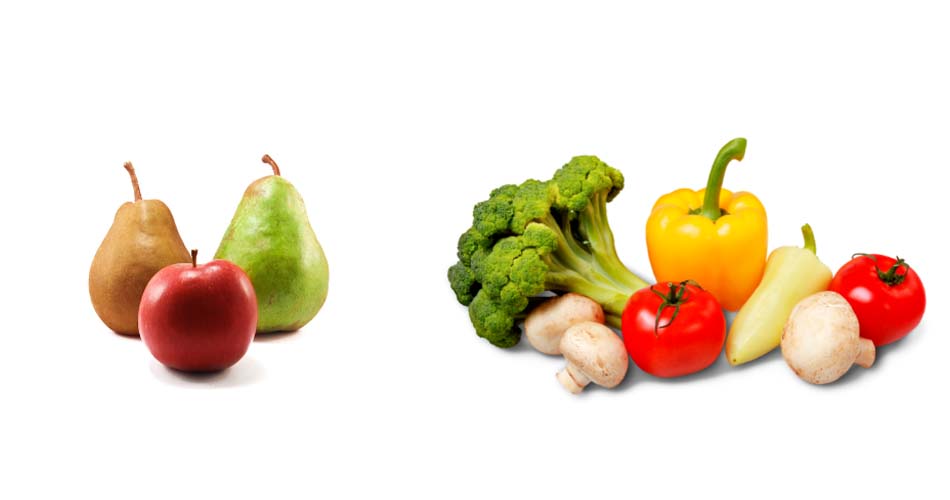
Keeping fruits and vegetables fresh and good to consume turns out to be not a simple task! Often we forget that it’s important to store our products in a certain way and get to the point where they die in just a few quick days. This makes us think, “How are stores able to keep their products fresh all the time?”
While it’s not actually that hard, it does require you to keep in mind all considerations for keeping them fresh as long as possible.
There are some tricks that can be used, and of course, we are about to share them all with you right now! The first thing you need to know is it’s not all about the fridge! Some people are used to putting everything in the refrigerator in order to prolong the life of a vegetable. Still, it’s crucial to understand that some fruits and veggies are best kept outside – at a specific temperature and certain humidity/dryness.
Let’s get into details, shall we?
Storing root vegetables – potatoes, carrots, and more

Okay, we’re starting with the first group of veggies – the one that doesn’t need to be stored in a fridge! It’s good enough if you have a cool and dry place to keep them as they can last long without any problem. This could be a storage room, garage, cellar, or closet? Potatoes can last up to three months there, as well as sweet potatoes. Keep in mind that big potatoes last longer than smaller ones.
Unlike potatoes, carrots are best kept in the fridge but carefully wrapped with a damp paper towel. They can last up to three weeks this way. Be sure to note this: remove any leaves or other greens that come with the carrots and then wrap them well.
Note: Root veggies should be kept separate from onions and bananas!
And speaking of onions, they together with garlic and shallots, should also be kept outside of a fridge – in a dark place with room temperature.
Storing lettuce and other leafy greens

Whether it’s kale, spinach, lettuce, or else, the best thing you can do with leafy greens is: rinse them, then wrap them with a paper towel, and then put them in the refrigerator stored in a container or sealed plastic bag. Some people don’t wrap the greens, just put them in a container, but it’s best to follow both tips if you want to keep them fresh and good for consummation.
Note: It’s best if you rinse the green and store them in a fridge as soon as you buy them because this will keep them good to eat. Also, even if you are buying prewashed lettuce, still make time to rinse it one more time.
Veggies with a short life in the fridge

Zucchini can be stored both in a fridge or in a plastic bag in a drawer (with one end open). In both ways, you’ll be able to enjoy them for 5 to 7 days.
The same goes for eggplant, peppers, peas, and cucumbers. Store them rinsed in the fridge, and you will have them fresh for a week.
Broccoli and brussels sprouts also don’t require any special storage conditions. They can stay good in your fridge for about 3 to 5 days.
Important for veggies and fruits!

One of the most important things you need to remember today is that vegetables and fruits need to stay separated and not be stored together.
You’ve probably heard how avocado ripes faster if it’s stored with an apple. Well, now you know why! Fruits such as apples and pears produce a gas called ethylene and it speeds up the process of ripening of not only vegetables but also other fruits.
The other fruits producing ethylene are peaches, kiwi, nectarines, and plums.
Note: whether it’s a fruit or vegetable that is cut, it should immediately be stored in a fridge. Even products that usually stay on the counter, once cut they need to be kept cool if you want to be able to enjoy them a few more days.
Do you want to preserve food for more extended periods? This strange method will make your food lasts for 2 years without refrigeration! Watch the video>>
Bonus tips!

Freeze anything you won’t be able to eat soon! Yup, that’s right! Freezing vegetables and fruits will help preserve nutrients and enjoy your favorite foods all year long! Well, you need to have a big freezer for that, though!
Mushrooms are unique in their storage preferences. First, some people think that mushrooms shouldn’t get wet, which is not really true. However, when storing them in a fridge, you should put them in a paper bag and not in a plastic one. They do have high water content, and this could make them shrink.
When storing tomatoes – keep in mind that putting them in the fridge might get their texture grainy. When keeping them on the shelf but out of direct sunlight, you’ll get them to ripen evenly and stay fresh longer.
Unlike other vegetables that need to be separated from apples and pears, winter squash has to be kept away from bananas. Store them in a cool place, and you can have them good for 3 to 6 months!
And last but not least, picking out what you buy might be the best first thing you can do. After all, if you buy a bad apple, it doesn’t matter where you keep it; it’s still going to be bad.
Before refrigerators were invented our ancestors used to ferment food so they can store it for longer periods of time. Fermenting is a great way to store food and allows having your own food supply even in times of crisis. Click here to discover 126 superfoods that you can store without refrigeration for years (a.k.a. The US Army’s forgotten food miracle).
That’s a wrap!
Literally. Wrap whatever you need to, keep in containers, store at the right place and temperature, and you’ll be all set! Keep your veggies fresh and enjoy a healthy lifestyle every day!

Its like you read my mind! You seem to know a lot about this, like you wrote the book in it or something. I think that you can do with some pics to drive the message home a bit, but other than that, this is wonderful blog. A fantastic read. I will definitely be back.
Thanks for your feedback! I’ll do my best to make them better.